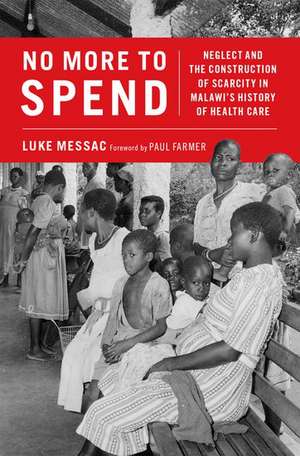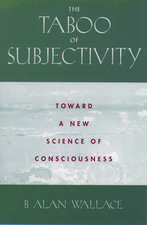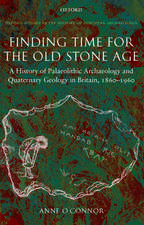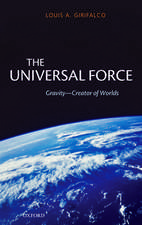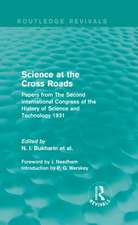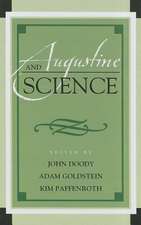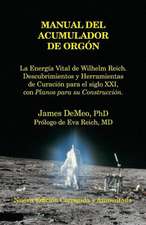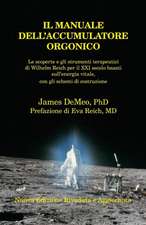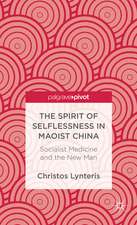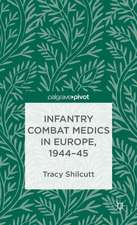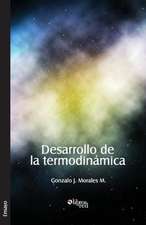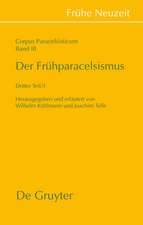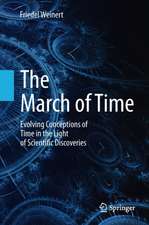No More to Spend: Neglect and the Construction of Scarcity in Malawi's History of Health Care
Autor Luke Messacen Limba Engleză Hardback – 5 iun 2020
| Toate formatele și edițiile | Preț | Express |
|---|---|---|
| Paperback (1) | 228.62 lei 10-17 zile | |
| Oxford University Press – 24 mar 2022 | 228.62 lei 10-17 zile | |
| Hardback (1) | 509.12 lei 10-17 zile | |
| Oxford University Press – 5 iun 2020 | 509.12 lei 10-17 zile |
Preț: 509.12 lei
Preț vechi: 586.30 lei
-13% Nou
Puncte Express: 764
Preț estimativ în valută:
97.48€ • 101.51$ • 80.88£
97.48€ • 101.51$ • 80.88£
Carte disponibilă
Livrare economică 13-20 ianuarie
Preluare comenzi: 021 569.72.76
Specificații
ISBN-13: 9780190066192
ISBN-10: 0190066199
Pagini: 298
Dimensiuni: 231 x 155 x 23 mm
Greutate: 0.43 kg
Editura: Oxford University Press
Colecția OUP USA
Locul publicării:New York, United States
ISBN-10: 0190066199
Pagini: 298
Dimensiuni: 231 x 155 x 23 mm
Greutate: 0.43 kg
Editura: Oxford University Press
Colecția OUP USA
Locul publicării:New York, United States
Recenzii
This text is important for anyone interested in how powerful groups legitimize social deprivation that results in poor health among the world's impoverished by implementing inane and unhelpful solutions. Messac's study will no doubt shame the former British colonial regime, but, more important, it should arm those currently in power to break the cycle of lame excuses and spur them to provide decent health services for the people of Malawi—and wherever European colonial regimes engaged unfairly with African peoples.... Summing up: Highly recommended.
Messac's work is a brave and important book, one that asks, with cold clarity and detailed historiographic work, the 'politically uncomfortable questions of distribution' that many only touch on. Through painstaking detail, the book convincingly shows how the narrative of scarcity in African health care was produced and has become reified, and the challenge it sets us as to why we have come to (largely) accept this, cannot be ignored.
In global health, there are still too many excuses for inaction. Through fieldwork and archival research, Luke Messac's book exposes the origins of arguments - ones I have heard far too often - for why we must value some human lives more than others. To win the fight for global health equity, we must first understand the colonial-era roots of the denial of quality health care to the world's poor.
No More to Spend is a beautifully rendered social history, but it is also a superb and humane ethnography. Like a good historian, Messac advances while looking backwards. Like a good anthropologist and a superb doctor, he casts his eyes, and his thoughts, on people like Francis, trudging forwards against long odds not of his own making.
No More to Spend is an important book on the political origins of scarcity in health care among the world's poor. Messac's original analysis explains how the people of Malawi came to be deprived of appropriate levels of spending and care over the past 100 years. This is a wonderfully thought-provoking book.
Based on an insightful and sensitive handling of a rich range of sources, No More to Spend represents a significant contribution to several fields, including the history of medicine and global health. This is an impressive analytical discussion of the wide ranging effects of the social construction of scarcity and the impact of new, effective medication in colonial and postcolonial Malawi (Nyasaland).
In this masterful contribution to the emerging subdiscipline of global health history, Luke Messac examines the trajectory of health care in the former British colony of Malawi from the late nineteenth century to the present. Fascinating and methodologically meticulous.
Messac has created an engaging and lively study of how powerful people make scarcity look inevitable. By carefully examining how international and national policy has affected health care spending in a single state, he's able to show both the human cost of longstanding patterns of underfunding and the means by which people have sometimes forced their leaders - colonial and postcolonial - to do better.
Messac's work is a brave and important book, one that asks, with cold clarity and detailed historiographic work, the 'politically uncomfortable questions of distribution' that many only touch on. Through painstaking detail, the book convincingly shows how the narrative of scarcity in African health care was produced and has become reified, and the challenge it sets us as to why we have come to (largely) accept this, cannot be ignored.
In global health, there are still too many excuses for inaction. Through fieldwork and archival research, Luke Messac's book exposes the origins of arguments - ones I have heard far too often - for why we must value some human lives more than others. To win the fight for global health equity, we must first understand the colonial-era roots of the denial of quality health care to the world's poor.
No More to Spend is a beautifully rendered social history, but it is also a superb and humane ethnography. Like a good historian, Messac advances while looking backwards. Like a good anthropologist and a superb doctor, he casts his eyes, and his thoughts, on people like Francis, trudging forwards against long odds not of his own making.
No More to Spend is an important book on the political origins of scarcity in health care among the world's poor. Messac's original analysis explains how the people of Malawi came to be deprived of appropriate levels of spending and care over the past 100 years. This is a wonderfully thought-provoking book.
Based on an insightful and sensitive handling of a rich range of sources, No More to Spend represents a significant contribution to several fields, including the history of medicine and global health. This is an impressive analytical discussion of the wide ranging effects of the social construction of scarcity and the impact of new, effective medication in colonial and postcolonial Malawi (Nyasaland).
In this masterful contribution to the emerging subdiscipline of global health history, Luke Messac examines the trajectory of health care in the former British colony of Malawi from the late nineteenth century to the present. Fascinating and methodologically meticulous.
Messac has created an engaging and lively study of how powerful people make scarcity look inevitable. By carefully examining how international and national policy has affected health care spending in a single state, he's able to show both the human cost of longstanding patterns of underfunding and the means by which people have sometimes forced their leaders - colonial and postcolonial - to do better.
Notă biografică
Luke Messac is a resident in emergency medicine at Brown University. He received his M.D. and Ph.D. (History and the Sociology of Science) from the University of Pennsylvania.
